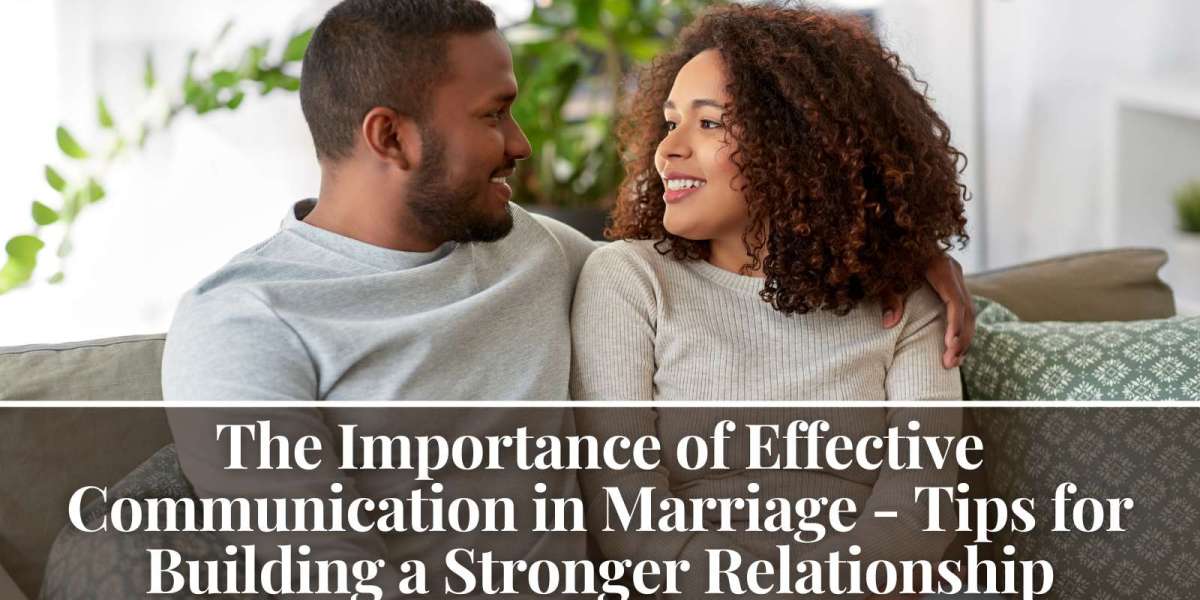Sure! Here's a brief outline for an article on how to improve communication in a relationship, followed by the content itself:
How to Improve Communication in Your Relationship
Communication is the foundation of any healthy relationship. It is the way we connect, share, and understand each other. Effective communication builds trust, strengthens bonds, and resolves conflicts. However, many couples struggle with communication. Misunderstandings, emotional barriers, and unmet needs can lead to frustration. Luckily, there are proven strategies to improve communication and create a stronger connection with your partner.
1. Understand the Importance of Communication
In a relationship, communication is more than just talking. It’s about listening, understanding, and being understood. It helps both partners express their thoughts, feelings, and needs in a healthy way. When communication is poor, partners can feel isolated, frustrated, or neglected.
Good communication fosters a deeper connection. It allows both people to feel heard and valued. When communication breaks down, misunderstandings can grow, creating distance between partners.
2. Be an Active Listener
Listening is a key aspect of good communication. Active listening means fully concentrating on what your partner is saying, without planning your response while they’re speaking. This approach shows that you respect and care about their feelings and opinions.
- Give your full attention: Put away distractions like phones or TV when talking.
- Use body language: Nod, make eye contact, and lean in to show interest.
- Avoid interrupting: Let your partner speak without cutting them off.
- Ask clarifying questions: This ensures you understand their point of view.
When you listen actively, you show empathy. This can help both partners feel closer and more understood.
3. Be Clear and Honest
Clear and honest communication is essential. Avoid assumptions or vague statements. Be straightforward about your feelings, needs, and expectations. When you hide or avoid difficult topics, it can lead to confusion or resentment.
- Use "I" statements: This prevents blaming. For example, say "I feel hurt when..." instead of "You always..."
- Be honest about your needs: If something bothers you, address it directly, but kindly.
- Express appreciation: Let your partner know when they do something that makes you happy.
Honesty encourages openness in a relationship. It can also prevent small issues from growing into larger conflicts.
4. Practice Empathy
Empathy is the ability to understand and share your partner's feelings. When you are empathetic, you show that you care about their emotional experience. This creates a sense of safety and trust in the relationship.
- Acknowledge their emotions: Even if you don’t agree with their perspective, validate their feelings.
- Put yourself in their shoes: Try to understand how they are feeling, not just what they are saying.
- Respond with compassion: Show that you care about their well-being.
Empathy helps bridge emotional gaps and fosters emotional intimacy. It allows partners to feel supported during difficult times.
5. Avoid Negative Communication Patterns
Certain communication patterns can be damaging to relationships. These patterns include:
- Criticism: Attacking your partner’s character instead of focusing on the issue.
- Defensiveness: Responding to feedback with denial or blame.
- Stonewalling: Withdrawing or shutting down during a conversation.
- Contempt: Showing disrespect or sarcasm.
These behaviors can erode trust and intimacy over time. Avoiding them can make communication more productive and respectful.
Instead, try to approach conversations with kindness and a willingness to find solutions together. Focus on the issue, not the person.
6. Manage Conflict Constructively
Conflicts are inevitable in any relationship. It’s how you handle them that matters. Healthy conflict resolution requires patience, compromise, and respect.
- Stay calm: Take a break if emotions are running high.
- Focus on the issue: Avoid bringing up past grievances.
- Use positive language: Instead of saying, “You never listen,” try, “I feel ignored when I’m talking.”
Resolving conflicts constructively helps both partners feel valued and understood. It also strengthens the relationship by showing that both people are committed to working through challenges.
7. Set Aside Time for Quality Conversations
In busy lives, it’s easy to let communication slip. But regular, meaningful conversations are essential. Make time for each other, away from distractions.
- Set aside "us time": This could be a weekly date night or a daily check-in.
- Talk about your day: Share experiences, thoughts, and feelings to stay connected.
- Discuss dreams and goals: Talk about your aspirations and support each other’s growth.
Quality time together helps deepen your connection. It shows that you prioritize your relationship and care about each other’s well-being.
8. Use Nonverbal Communication Effectively
Communication isn’t just about words. Nonverbal cues, such as body language, tone of voice, and facial expressions, can convey a lot of meaning. Being mindful of nonverbal communication can improve understanding between partners.
- Pay attention to your tone: A calm, warm tone can prevent misunderstandings.
- Use positive body language: Lean in, smile, and maintain eye contact.
- Be aware of your facial expressions: They can convey your emotions even when you’re not speaking.
Nonverbal communication can support or contradict what you’re saying. Ensure your body language aligns with your words to prevent confusion.
9. Be Open to Feedback
In a healthy relationship, both partners should be open to giving and receiving feedback. Constructive feedback helps both people grow and improve their communication skills.
- Accept feedback with grace: Don’t get defensive. Instead, listen to your partner’s perspective.
- Offer feedback gently: If you need to address an issue, do so respectfully.
- Work on your communication together: Communication is a skill that both partners can improve over time.
Feedback strengthens the relationship by promoting mutual understanding. It shows that both partners are willing to grow and improve.
10. Be Patient and Consistent
Improving communication takes time. It requires practice, patience, and consistency. Don’t expect immediate results. It’s a gradual process that requires effort from both partners.
- Be patient with each other: Change doesn’t happen overnight.
- Stay consistent: Practice good communication habits regularly.
- Celebrate progress: Acknowledge improvements in your communication.
Consistent effort over time leads to lasting positive change. Your relationship will grow stronger as both partners continue to improve how they communicate.
Conclusion
Improving communication in a relationship takes effort, but it’s worth it. Good communication fosters understanding, trust, and connection. By being an active listener, expressing yourself clearly, practicing empathy, and resolving conflicts constructively, you can build a deeper, more fulfilling relationship. Remember, communication is a two-way street. Both partners must be committed to improving how they connect with each other.
By following these tips and remaining patient and consistent, you can enhance the communication in your relationship and enjoy a stronger, more meaningful bond.
For more relationship tips and advice, visit https://venzec.icu/.








